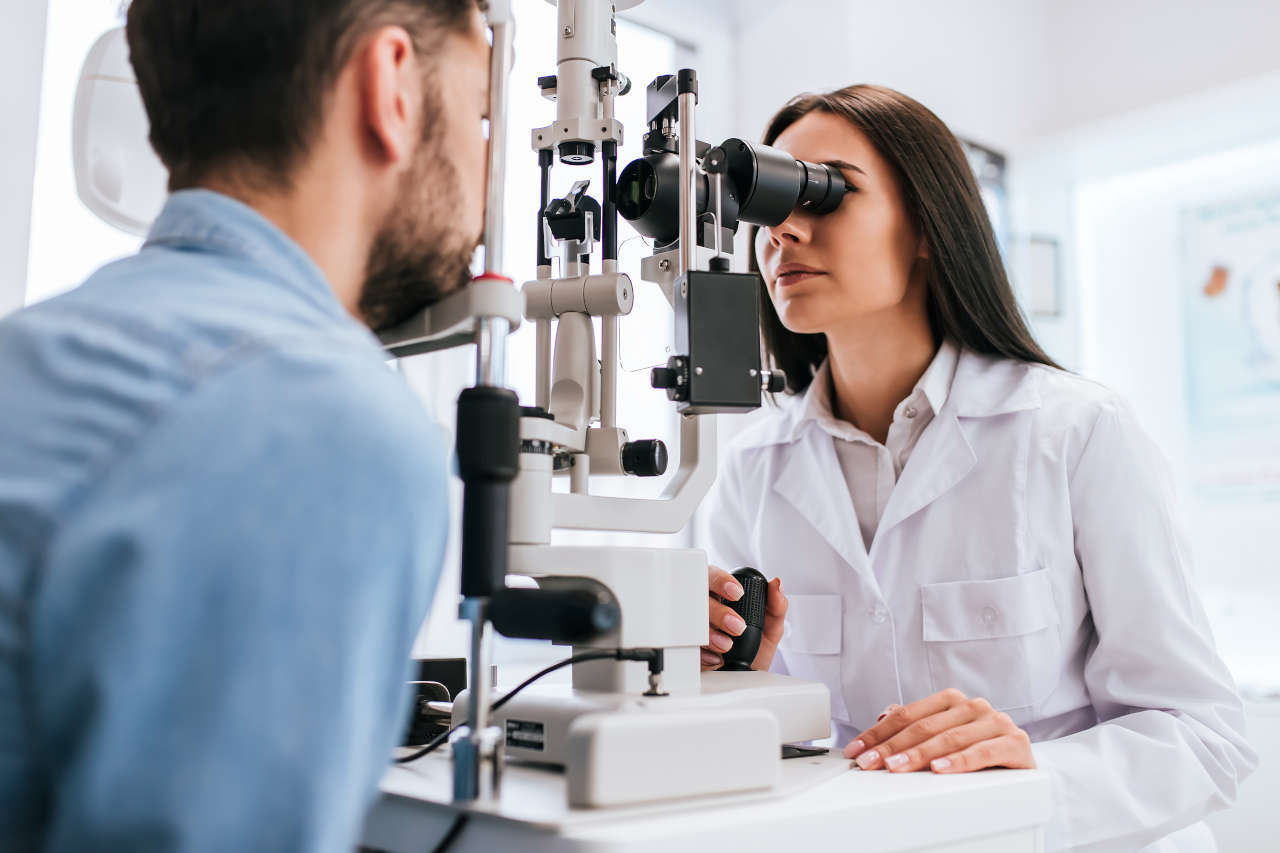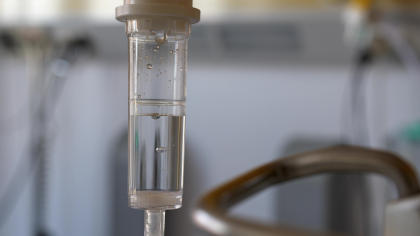
Untreated mucous membrane pemphigoid (MMP) can lead to blindness, swallowing difficulty, and other complications. Studies suggest a potential link between MMP and cancer; therefore, getting an early diagnosis and individually tailored treatment is crucial.
Speak to a Specialist About Copay Assistance
What Is Mucous Membrane Pemphigoid?
Other names: Cicatricial pemphigoid, mucosal pemphigoid, and mucosynechial pemphigoid.
Mucous membrane pemphigoid is a group of long-term disorders that cause blisters on your mucous membranes, occasionally the skin.
The term “mucous membrane pemphigoid” consists of two words:
- Mucous membrane: Also called mucosa, the mucous membranes line the insides of organs and cavities.
- Pemphigoid: Pemphigoid refers to tight bubbles of fluid (blisters) that do not open easily.
The most commonly affected sites are the mouth and eyes. However, other areas may also be involved, such as your nose, throat, and genitals.
How Common Is Mucous Membrane Pemphigoid?
MMP is a rare condition. According to the Genetic and Rare Disease Information Center (GARD), it affects fewer than 5,000 Americans [1].
Furthermore, it is more common in older adults (50 years or older), and women are more likely than men to get this disorder.
What Causes Mucous Membrane Pemphigoid?
The exact cause is unknown. However, health experts believe a faulty immune response might be the culprit. For this reason, some consider it an autoimmune disorder.
In individuals with this disorder, the immune system produces proteins (autoantibodies) that attack the mucous membranes of the mouth, eyes, or other sites.
Researchers have yet to understand why this happens. However, they believe a combination of genetic and environmental factors may play a role.
In a minority of cases, this disorder may result following certain prescription medications or surgery.
Studies also suggest the presence of specific autoantibodies may increase the risk of cancer [2,3].
What Are the Symptoms of Mucous Membrane Pemphigoid?
Symptoms can vary depending on the site involved.
For example, the blisters in the mouth — oral mucous membrane pemphigoid — appear as red, painful ulcerated patches on the inner cheeks, gums, or roof of the mouth.
On the other hand, the symptoms of ocular MMP, which affects the eyes, can include:
- A feeling of roughness on the inside of the eyelids
- Red or painful eye
- In-turning eyelashes
- Mucous discharge in the eye
- Shrinking of the space between the eye and eyelid
- Sticking of the eyeball to the eyelid (partial or complete)
- Thickening of the eye’s surface
- Blindness (in severe cases)
Blisters that form on the nose, throat, and genitals may heal with scarring. Scarring in the food pipe (esophagus) can make swallowing difficult.
If the skin is involved, blisters often appear on the scalp, face, trunk, or limbs.
How Is Mucous Membrane Pemphigoid Diagnosed?
Diagnosis begins with a physical exam, which helps your provider determine the location and type of blisters. If they suspect MMP, they will order additional tests and procedures, such as:
- Biopsy: Your provider removes a sample of tissue from the affected site and analyzes the sample under a microscope.
- Immunofluorescence assay: The sample is stained with a chemical, making it distinctly visible under the microscope.
- Blood test: In some cases, a blood sample can reveal the presence of autoantibodies in the blood.
Moreover, you may need imaging studies such as CT scans if your airway or food pipe is affected. They may also help if you have cancer.
Your provider may also refer you to a specialist, including:
- An ophthalmologist (an eye specialist) if they think you have signs of ocular MMP
- An ENT (ear, nose, throat) specialist
- A dermatologist (a skincare specialist)
- A dentist
How Is Mucous Membrane Pemphigoid Treated?
There is no cure for MMP yet, and lesions rarely go away without treatment. Even with appropriate treatment, they may come and go periodically.
Treatment aims to control blistering, promote healing, and prevent complications. Before recommending specific treatment, your provider will discuss treatment options and their benefits/risks.
Treatment can vary depending on the severity of the condition and include [4]:
Medications
For mild-to-moderate cases, primary treatment includes dapsone, methotrexate, or tetracyclines (with or without topical corticosteroids).
If you have severe symptoms, your provider will likely recommend dapsone and oral or IV cyclophosphamide (with or without oral corticosteroids).
Wound Care
Wound care involves daily gentle cleaning, dressing, and topical medicines.
Eye Care
Eye care involves lubricating eye drops and silicon plugs to help reduce dryness.
Screening for Cancer
The risk of cancer may be higher in those with specific autoantibodies. In such cases, appropriate screening can help detect cancer early.
Surgery
Your provider may recommend surgical procedures to:
- Prevent corneal scarring
- Open the airway
- Help with swallowing
Get Financial Assistance | Copay Assistance
Can IVIG Help Improve Mucous Membrane Pemphigoid?

According to a 2016 review, IVIG can benefit people who did not respond to or could not tolerate conventional therapy [5].
How IVIG works for MMP is not fully understood. Nonetheless, it is thought to remove causative antibodies from circulation.
Mucous Membrane Pemphigoid: What’s the Outlook?
How MMP progresses is often hard to predict. To make matters worse, many individuals do not respond to conventional therapy.
There have been reports of long-lasting remissions (periods without symptoms) in some individuals. However, in most cases, the symptoms reappear.
Thus, regular monitoring and follow-ups are recommended.
Luckily, there seems to be no connection between MMP and lifespan.
What Is the Difference Between Pemphigus and Pemphigoid?
Both are blisters, but the pemphigus is fragile and opens easily. On the other hand, pemphigoid is stronger and does not break open easily.
Living With Mucous Membrane Pemphigoid: Dietary and Activity Tips
- Avoid acidic foods, such as tomatoes, lemon, and orange juice.
- Limit or avoid foods with hard surfaces, such as nuts, uncut fruits, and chips.
- If you are on corticosteroid therapy, maintain adequate calcium and vitamin D levels through diet and supplements. Ask your doctor or provider to learn what is the optimum level for your condition.
- Use contact lenses or dental plates carefully.
- Minimize participation in contact sports. Instead, go for activities like swimming or water exercises.
- Quit smoking and drink in moderation. Find help at smokefree.gov and MyHealthfinder.
- Stick to your treatment plan.
REFERENCES:
- Mucous membrane pemphigoid – About the Disease – Genetic and Rare Diseases Information Center. (n.d.). https://rarediseases.info.nih.gov/diseases/5913/mucous-membrane-pemphigoid
- La Placa, Michelangelo et al. “Mucous Membrane Pemphigoid-Associated Malignancies: Case Series and a Brief Overview of the Literature.” Dermatology practical & conceptual vol. 9,2 119-125. 30 Apr. 2019, doi:10.5826/dpc.0902a07
- E Letko, H. M. Gürcan, G. N. Papaliodis, W. Christen, C. S. Foster, A. R. Ahmed, Relative risk for cancer in mucous membrane pemphigoid associated with antibodies to the β4 integrin subunit, Clinical and Experimental Dermatology, Volume 32, Issue 6, 1 November 2007, Pages 637–641, https://doi.org/10.1111/j.1365-2230.2007.02463.x
- Schmidt, E et al. “European Guidelines (S3) on diagnosis and management of mucous membrane pemphigoid, initiated by the European Academy of Dermatology and Venereology – Part II.” Journal of the European Academy of Dermatology and Venereology : JEADV vol. 35,10 (2021): 1926-1948. doi:10.1111/jdv.17395
- Tavakolpour, Soheil. “The role of intravenous immunoglobulin in treatment of mucous membrane pemphigoid: A review of literature.” Journal of research in medical sciences : the official journal of Isfahan University of Medical Sciences vol. 21 37. 14 Jun. 2016, doi:10.4103/1735-1995.183992













